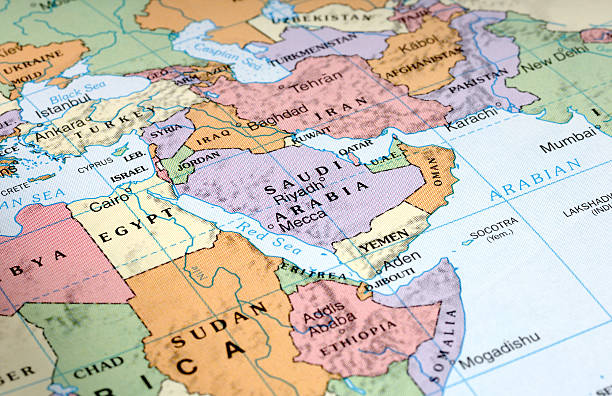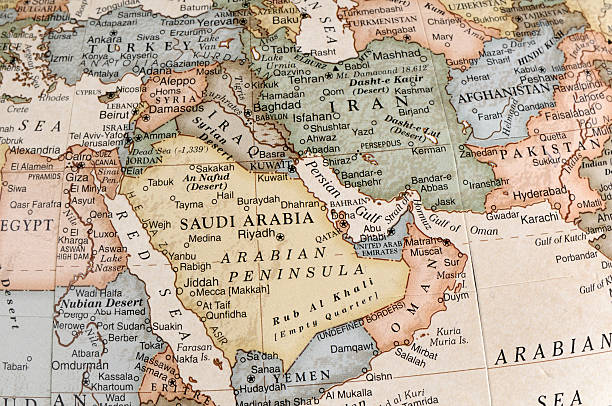On March 15, the Governments of France, Germany, the UK, and the US issued a statement on the occasion of the 13th anniversary of the Syrian uprising.[i]
They said that on this day 13 years ago, “the Syrian people took to the streets in peaceful protest to demand their freedom and respect for human rights. The Assad regime met these protests with a ruthless campaign of oppression and atrocities that continues to this day. Since March 2011, the Syrian conflict has led to the deaths of more than 500,000 people and the forced displacement of more than half of the Syrian population. The coordinated efforts of the United Kingdom, United States of America, France, and Germany are focused on ending the suffering of the Syrian people.”
They also reiterated their commitment to ending the human rights violations and abuses suffered by the Syrian people at the hands of the Assad regime with whom they see no possibility of normalization of relations. For them, supposedly, preventing Daesh’s resurgence remains “a top priority”.
The statement is yet another Western attempt to remain on the moral high ground, to deny any responsibility whatsoever for the loss of 500,000 lives. Unfortunately, it is not convincing.
The month of March also marks the 21st anniversary of the invasion of Iraq, but a similar statement is not to be expected.
Iraq, under Saddam Hussein’s one-man rule, was rightly punished for its invasion of Kuwait in 1990. Regardless, thirteen years later, in 2003, it was invaded by the US and the UK under false premises. Two decades later, Baghdad is still struggling to find direction. This is what the Watson Institute said a year ago on Iraqi casualties:
“No one knows with certainty how many people have been killed and wounded in Iraq since the 2003 United States invasion. However, we know that between 280,771-315,190 have died from direct war-related violence caused by the U.S., its allies, the Iraqi military and police, and opposition forces from the time of the invasion through March 2023. The violent deaths of Iraqi civilians have occurred through aerial bombing, shelling, gunshots, suicide attacks, and fires started by bombing. Many civilians have also been injured.
“Because not all war-related deaths have been recorded accurately by the Iraqi government and the U.S.-led coalition, the numbers are likely much higher. Several estimates based on randomly selected household surveys place the total death count among Iraqis in the hundreds of thousands.”[ii]
On March 17, 2011, the UN Security Council energized by the Arab Spring chaos adopted Resolution 1973 on Libya. China, Germany, and Russia abstained.
On 19 March 2011, a conference in Paris, held under French, British, and US leadership decided to start air operations against Qaddafi’s forces “to protect the civilians”. Within hours air strikes began. It soon became clear that the purpose was regime change in violation of Resolution 1973.
Thus, the month of March also happens to mark the anniversary of the Libya intervention.
In an op-ed published in mid-April 2011, in the International Herald Tribune, Le Figaro, and the Times of London, President Obama, President Sarkozy, and Prime Minister Cameron confirmed the project. Years later, Mr. Obama admitted that the Libya intervention with no preparation for the “day after” was wrong. Today, Libya remains a war-torn country.
The West’s next target was Syria. Was the regime change project in Syria designed to bring democracy and prosperity to Syria? No. It was designed to knock Syria, like Iraq, off the regional equilibrium. Because the way to help people under autocratic rule achieve democracy is not military intervention but engagement.
After two decades of war, destruction, and thousands of civilian casualties, the US turned over Afghanistan to the Taliban, thus sending it back to the Middle Ages. This was Washington’s unilateral decision marking another Middle East failure.
Finally, today, the West is at an impasse in charting a path toward lasting peace between Israel and the Palestinians. Had the Middle East history of the past twenty-five been written differently, Western public statements about the concern for the loss of life in Gaza, and the need for humanitarian aid could have resonated in the Global South.
To sum up, the West has not written a single success story in the Middle East in the past seven decades.
Türkiye’s roller-coaster foreign policy of the last fifteen years, characterized by U-turns, fares no better. The beginning of the downturn was the Syrian uprising when Türkiye’s AKP government could not resist the temptation of bringing the Muslim Brotherhood to power in Damascus. The project proved a strategic blunder.
After Bashar al-Assad succeeded his father, Ankara enjoyed good relations with Damascus, very cordial relations at the highest level. Türkiye no longer faced a terrorist threat from Syria. In 2009, the communique issued at the end of the Damascus meeting of the “Turkish-Syrian High-Level Strategic Cooperation Council” referred to a “strategic partnership”. It mentioned common threats and challenges confronting the two countries.
Türkiye also enjoyed good relations with Russia and regional countries. Our democratic decline had started to change the chemistry of our relations with traditional allies but diverging security interests had not become a problem characterized by outright hostility. We did not have tens of thousands of jihadist fighters right across the border in Idlib. We did not have millions of Syrian refugees in Türkiye.
On May 7, 2023, following an extraordinary meeting in Cairo, the Arab League re-admitted Syria to its ranks after an 11-year absence. Washington could not object but was not pleased. This, however, was the recognition of the Syrian reality. President Assad is neither a democrat nor the Taliban and he is there to stay. Moreover, Egypt, Jordan, Saudi Arabia, and the Gulf countries are no friends of the Muslim Brotherhood.
The West has so far remained “united in standing up to Russia’s unprovoked invasion of Ukraine” as its diplomatic discourse goes. It is providing arms to Kyiv, imposing sanctions against Russia, doing its maximum to alleviate the suffering of the people of Ukraine, and generously receiving Ukrainian refugees. All of that is commendable but now the emerging question seems to be “For how long?” Hopefully, President Putin would not misread the current picture as an opportunity to press ahead with the invasion as this would mark the beginning of a wider European conflict.
During the past decade, the Syrian people have suffered devastation and casualties like the people of Ukraine. Since the West dreads Syrian refugees heading toward its borders, it should take a step to bring peace to the country. It should engage Damascus and Russia to end the thirteen-year-long conflict. The war in Ukraine should not be an obstacle to such engagement. Ankara should restore its relations with Damascus since the two countries are to remain neighbors forever, sharing a 910-kilometer border. All this would take is just another U-turn.
Note: This post was first published in diplomaticopinion.com.
[i] https://www.auswaertiges-amt.de/en/newsroom/news/-/2649090
[ii] https://watson.brown.edu/costsofwar/costs/human/civilians/iraqi









